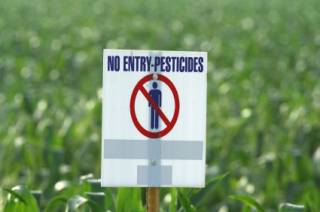The Food Industry, in US, doesn't want you to know how much pesticide you are consuming.

The United States Department of Agriculture (USDA’s) annual pesticide data were delayed by five months this year, thanks to the relentless effort of the food industry lobby. The USDA, however, deserves a pat on the back for not buckling under pressure of the pesticide lobby. The report released this year is no different from the earlier years despite a delay.
Since 1991, every year the reports were released in January but this year they data were released in May. The pesticides lobby wanted to arm twist the government to withhold the data on pesticide residues in food. Their contention is that the data was being misinterpreted by environmental health groups and non-profit organizations. Groups like the Environmental Working Group (EWG) and the Organic Centre use these data to put out reports that help people find out which fruits and vegetables have the highest or the lowest level of pesticide residues.
The pesticide lobby, a coalition of 18 producers and pesticide trade groups approached the USDA secretary Tom Vilsack, to reform the way the residue data was being made public. And these efforts are being made by the chemical-agriculture groups since 2010. In a letter to Vilsack, the lobby stated that the data has "been subject to misinterpretation by activists, which publicize their distorted findings through national media outlets in a way that is misleading for consumers and can be highly detrimental to the growers of these commodities”.
The concerns of the pesticide lobby stems from the fact that the sale of organic fruits and vegetables are rising while the sale of the conventional food items have remained flat. According to the latest EWG report, apples, celery and strawberries lead the dirty dozen list of fruits and vegetables that should be avoided due to high pesticide residues. Go organic here, suggests the EWG list. Onion, corn and pineapples topped the Clean 15 list, with the least amount of pesticide residue.
**Source : Pesticides You Eat Shouldn't Be Measured, Says Food Industry by Rodale.com
 Written by Savvy Soumya Misra Written by Savvy Soumya Misra savvy@cseindia.org |
Share this article